Manufacturing
High-end manufacturing with highest precision
Olympus not only develops innovative medical products, but also produces them. It is a matter of precision in the micrometer range. This places the greatest demands on the quality of material, on production technology and on employees.
Manufacturing techniques
The many steps from workpiece to final product
The products made by Olympus Surgical Technologies Europe are of a high precision and many are produced only in small quantities. This requires innovative production techniques and employees with finely skilled hands – from single-item production to final assembly.
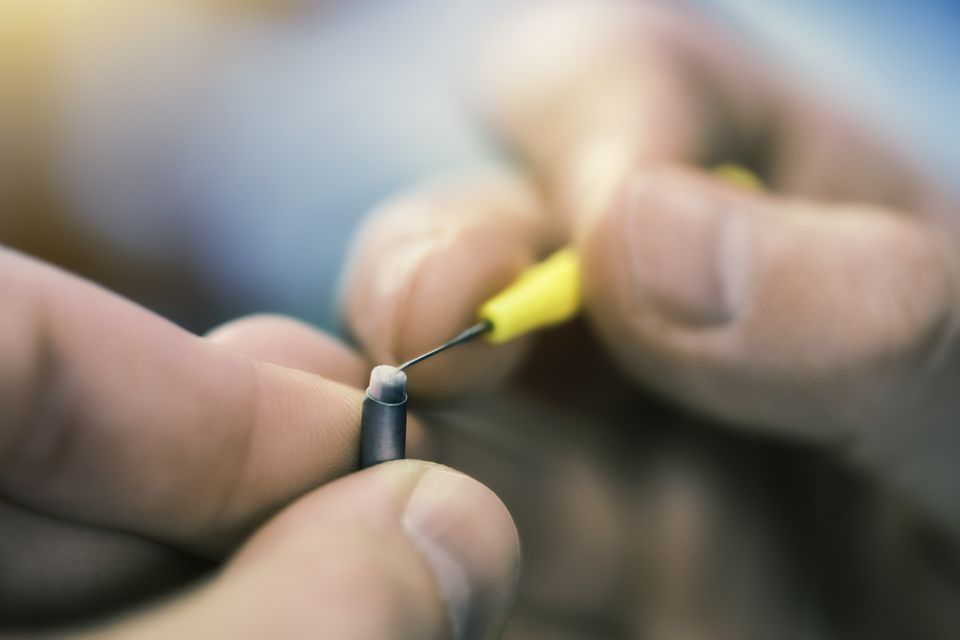
Olympus Surgical Technologies Europe manufactures about 3,500 different medical products – and places great importance on high vertical range of manufacture. To be able to respond to orders quickly and flexibly, manufacture products efficiently and ecologically, and at the same time ensure the highest quality, practically all the production steps are carried out directly in the company. This starts with machining of the workpiece and ends with the packaging of the final product. Here, technology and skilled craftsmanship go hand in hand.
The vertical range of manufacture unique for this sector requires the most diverse production systems that must be tailored to the individual products. Good examples for this are the laser applications, one of the core technologies. Alone at our Hamburg location there are almost 6,000 different laser applications for the welding, cutting and marking of individual components. Each individual product goes through at least one type of laser machining.
SINGLE-ITEM PRODUCTION
Single-item production is a matter of producing filigree components from pieces of metal – referred to as workpiece – with often complicated geometries. And on schedule, even for the smallest batches. These component parts are seldom larger than a few tenths of a millimeter, and the tolerances allowed are just as small: +/–5 to 20 micrometers deviation from the specified dimensions are usually the maximum allowed. For comparison: The average human hair is 60 micrometers “thick”. Thus in addition to the actual processing, the precision of the measuring of the component parts is very important.
In order for a workpiece to become a highly complex component, it requires up to 30 different turning, cutting, and drilling tools. These tools are combined together in the CNC turning machines (computerized numerical control) at Olympus. This way, entire components can be finished in a single production run – without having to change or retool the machine.
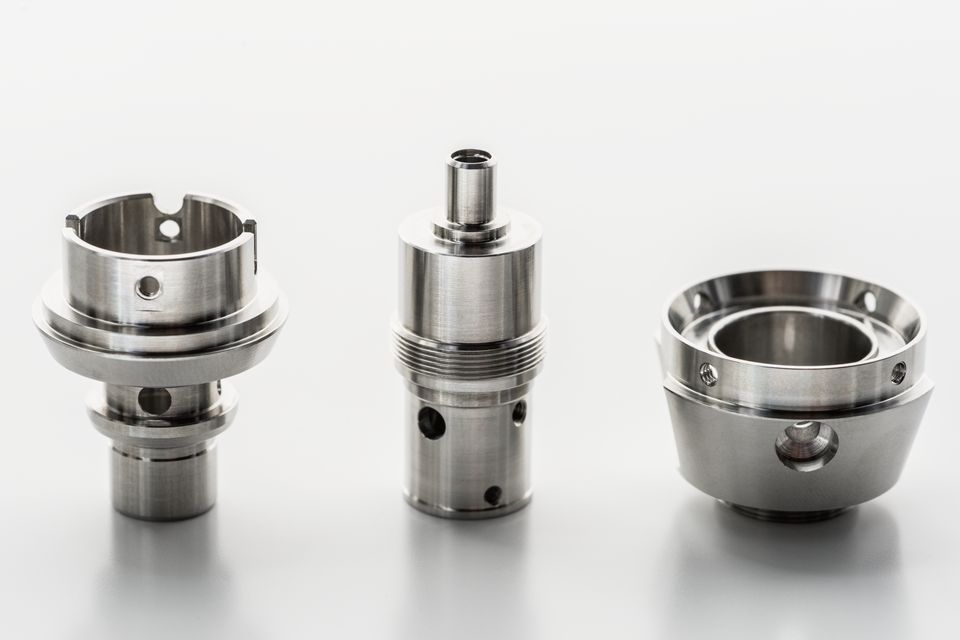
Just as important as the production of component parts is their micrometer-precise measuring. That is why Olympus relies on 3D coordinate measuring for the highly precise three-dimensional measuring of complex component parts.
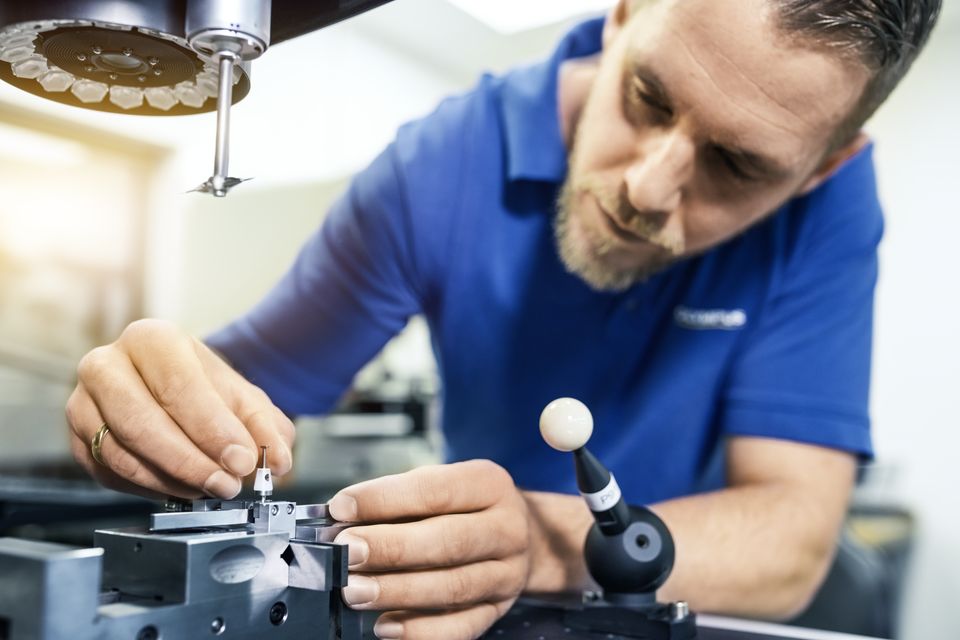
Assembly production
When component parts are assembled into actual components, two essential core competencies of Olympus Surgical Technologies Europe are used.
Tubes are the core component of all rigid endoscopes. The tubes used in the endoscopes are just as different as the endoscopes themselves. This affects both the materials and the geometries – that is, the shape and wall thickness of the tubes. Many work steps are carried out to accommodate the wafer-thin tubes to the desired shape. For example, they are reshaped, cut by laser without being touched, and provided with holes if necessary. The surfaces are machined and the edges are rounded off. Planning and executing the work steps requires a lot of experience and knowledge of materials.
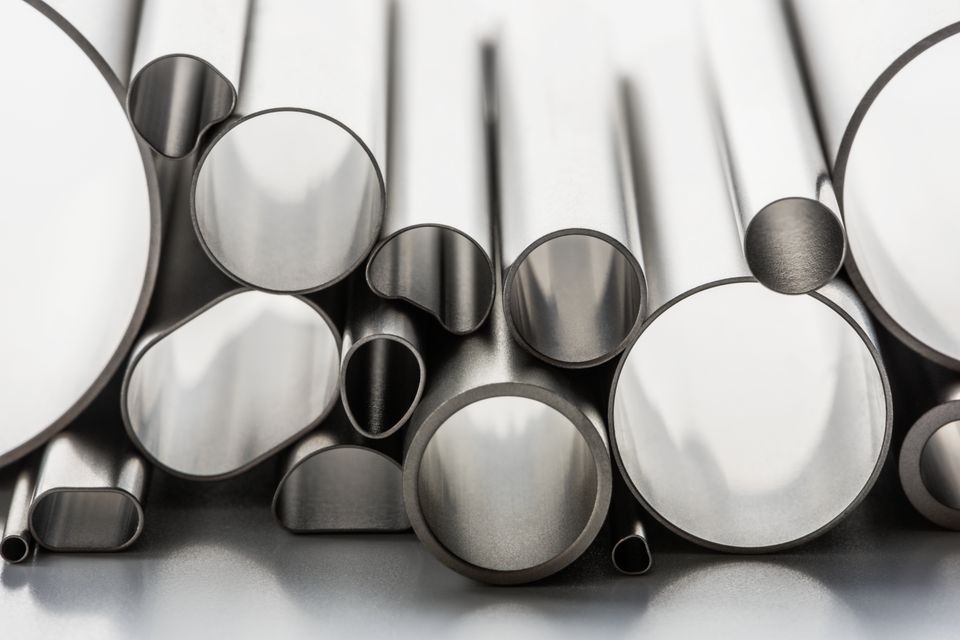
In operations, relatively high forces and torques affect the instruments used. In addition, fluids are frequently applied or drained off. Accordingly, the individual components of the medical instruments must be solidly and closely joined together. Laser welding is the technology of choice to ensure that this happens. This is the most important method of joining at least two metal components together. Therefore,
a wide variety of laser welding machines are being used at all company locations for the different applications. At Olympus Surgical Technologies Europe there is almost no product that doesn’t have a welding seam.
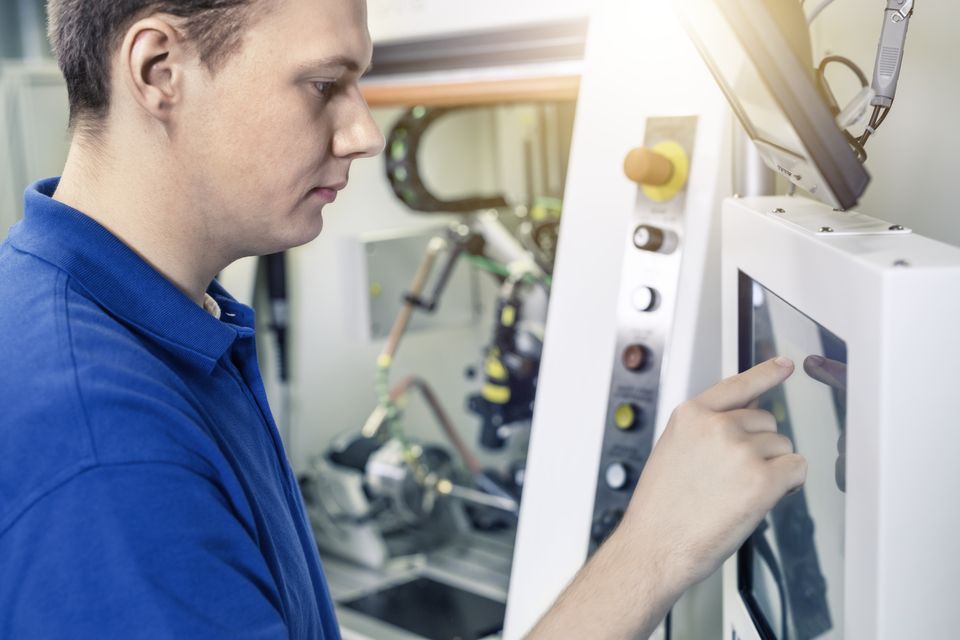
Final assembly
High tech meets skilled craftsmanship – this describes the entire production at Olympus Surgical Technologies Europe, but especially the final assembly. As important as machines, robots, and automated processes may be, it is the manual skills of Olympus employees that are crucial in the final assembly. Not only in the development and control of production technology, but also when it comes to the manual skills and sensitive touch. In the final assembly, specialists with good vision and a steady hand are responsible for the often difficult assembly of mechanical, electrical, and optical components.
Directly before the final assembly, all the articles are marked with article number, Olympus logo, CE marking and batch or serial number, etc. Here as well, special lasers precisely guided by a system with two mirrors are used. A graphic program supplies the information required.
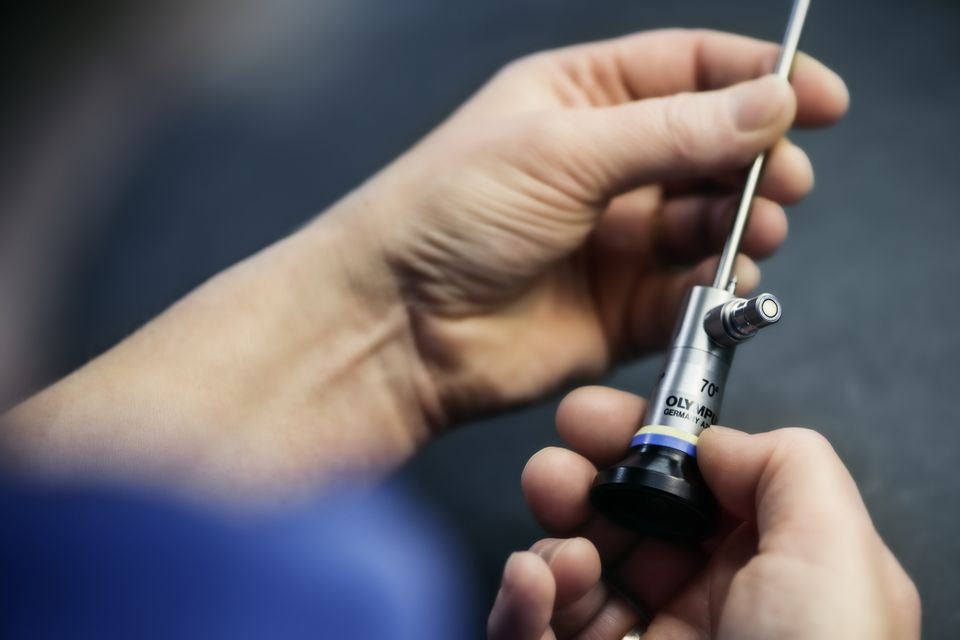
In the final assembly, all the optical and mechanical components of the products are joined, aligned, and tested with precision. In many cases, this is possible only manually and is often done under a microscope.
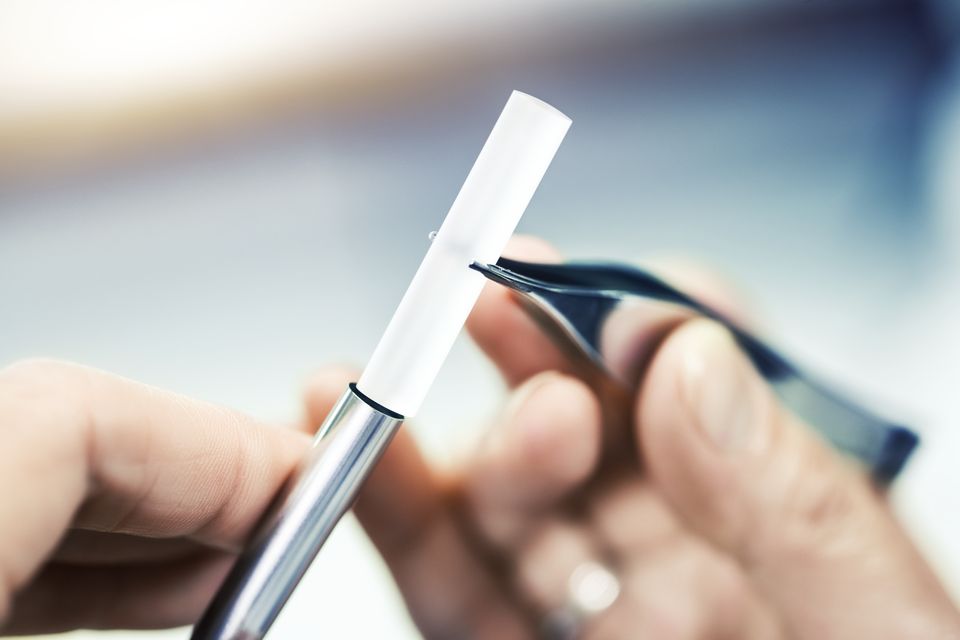
Wherever it is possible and practical, Olympus uses robots. For example, robots are used in lens production where they process the “cladding tubes” with the highest micrometer-range precision and fully automated.
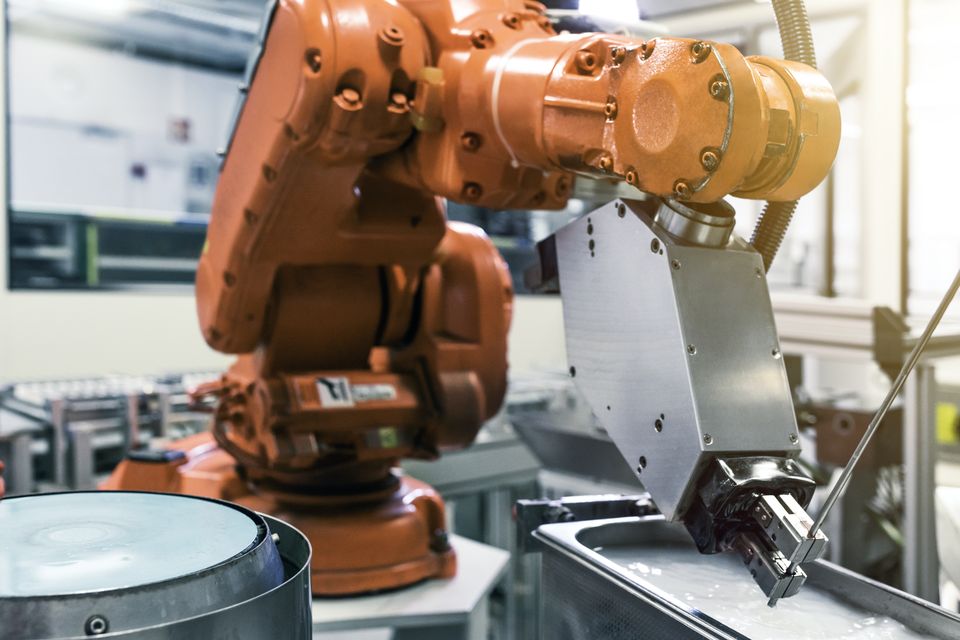
All components we manufacture are extremely complex with manufacturing tolerances in micrometer range.
Friedrich Schoen, Department Manager
Manufacturing concepts
Creating optimal processes
Innovative products in different quantities, in high quality and at a competitive price – to achieve these objectives, the appropriate structures and manufacturing concepts are required.
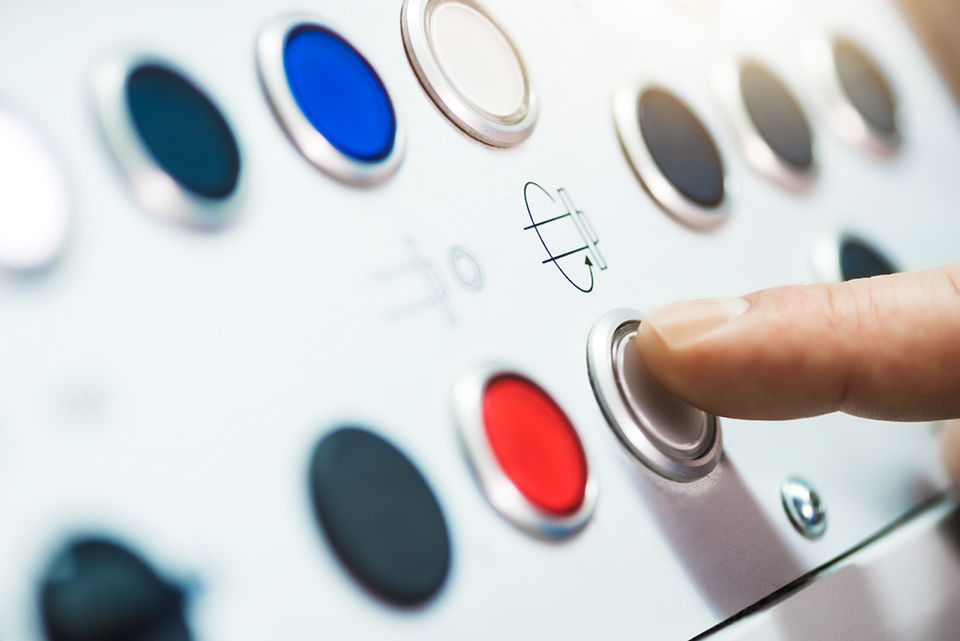
Special products require special processes. Therefore, at Olympus Surgical Technologies Europe the classic departments of Planning, Purchasing, Manufacturing, Supply Chain, Logistics, and Customer Support are combined under the integrated responsibility of the Operations division. This way, all the processes can be controlled centrally.
Also the production processes are continuously being developed further and optimized in terms of sustainable production with a secure future. For example, Olympus relies on approaches such as lean management, kaizen initiatives and a cross-functional idea management.
Logistics
Warehousing and logistics also play a pivotal role in the efficient structuring of manufacturing processes. For example, in order to manage the great variety of often complex articles and parts and to be able to respond flexibly to changes to supply and demand, a “pull system” (Kanban) controls logistics and purchasing. A vertical storage system allows materials to be stored in small areas and moved through all the stores, providing the greatest product handling speed and maximum space utilization.
Maintenance and repair
After delivery of a product, the know-how of Olympus employees is still required. Olympus has a fast and reliable service network to ensure the maximum readiness of our products. Certified service employees stand by our customers as reliable partners in regional repair centers.
Want to learn more about our manufacturing activities? Please contact us!
Technology development through cooperations
Collaboration with research institutions and universities
In order to produce at the highest level also in the future, Olympus relies on cooperations with universities, research institutions and industry partners. New trends must be detected and utilized – and qualified junior staff recruited.

As has long been customary in research and development, Olympus also relies on capable partners to develop new manufacturing processes or optimize existing processes together in production. In addition to universities and research institutions, long-term cooperations are also maintained with selected industry partners.
Both sides profit equally from joint research projects. Olympus obtains access to the latest scientific findings and establishes contacts for potential staff recruits. In addition to financial support, the partners ensure direct access to practical experience.
I like working under the microscope. The smaller, the better. This is always a personal challenge for me.
Kirsten Feindt, Employee in manufacturing
Employees
Are you also excited about high-tech?
Whether you are a manufacturing employee trained in fine craftsmanship, a technician skilled in different production technologies, or a specialized engineer, we are expanding and can offer you an exciting work environment.
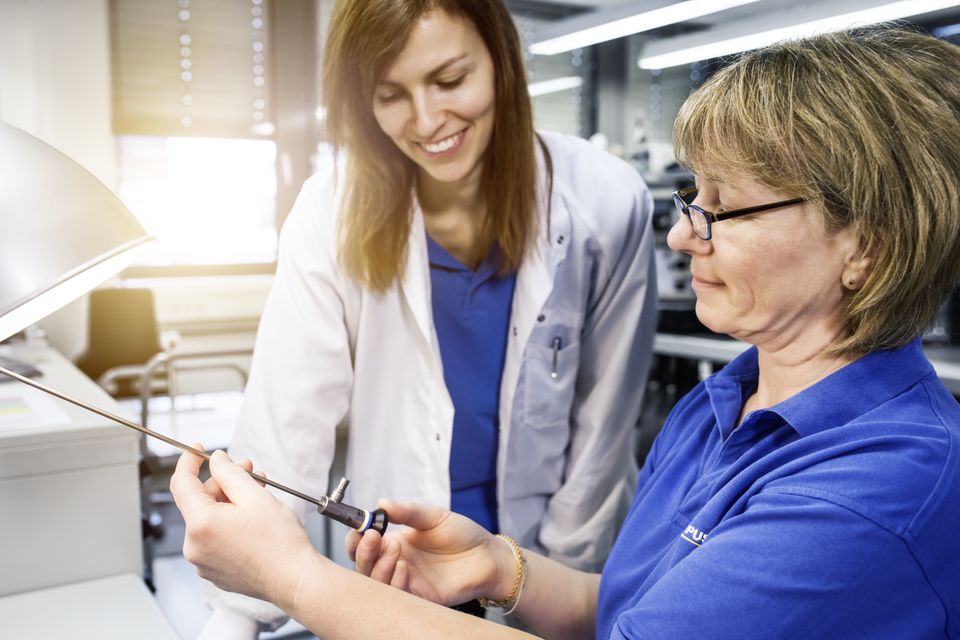
As diverse as all the employees in the operations division are, they are unanimous in their enthusiasm for technology, for our high-precision medical products, and for the innovative production techniques and concepts with which we manufacture them. Our employees can accompany the entire manufacturing process of innovative medical technology and – in direct coordination with research and development – also participate actively in the process.
What our employees appreciate is the exciting work environment with a great variety of manufacturing techniques – and the opportunity to grow with us. With regular training, for example, in the latest techniques and technologies, we make sure that our employees can move forward in their careers and are very qualified at all times. Furthermore, within Olympus there are many opportunities for exciting cross-departmental and international projects.
Just as our products and manufacturing technologies are constantly being developed further, new qualifications are always in demand. For example, in addition to mechanical engineers, today more and more electricians and IT specialists are joining our team. And our skilled workers also come from the most diverse areas of craftsmanship.
Pupils: You can start your career with us directly after leaving school with a solid apprenticeship. If you are in need of orientation, not sure which apprenticeship occupation is the right one for you, then the best thing is an internship with us.
Students: Students can gain practical experience any time during their studies as intern or working student. Or they can combine studies with work and start their career by doing their thesis with us.
As a production employee you will ideally come with precision mechanics training – for example, as an industrial mechanic in the field of instrument and precision mechanics, as surgical mechanic, lathe operator, clock maker, dental technician, optician or as an employee from another micro technical profession. If you are also reliable team player and tenacious in your work, having good comprehension, then you are exactly at the right place here with us.
You have completed your apprenticeship, for example, as a cutting machine operator in the field of lathe or milling machine operation, having at least two years professional experience. You are also familiar with materials and have PC skills. You have a good eye, work carefully, reliably, independently and accept only workpieces of the highest precision? Then come to us!
You have completed a course of study in automation technology, mechatronics, electrical engineering, mechanical engineering, process technology or similar. You can develop special equipment for manufacturing processes and can match them to the appropriate (automated) processes. In addition to having knowledge of mechanical and electrical design, you are also familiar with software development. Last but not least, you should have gained professional experience in a production-related environment.
You have completed a course of study in precision mechanics, mechanical engineering, production technology, medical technology, mechatronics or similar and also have production-related experience.
You have an overview of the entire manufacturing process of a product and should therefore come with technical manufacturing know-how and experience with supply chain designs, production management or similar special skills.
As a toolmaker, you should have studied mechanical engineering with a focus on design, toolmaking or something comparable and come with professional experience in tooling production. Additional requirements include familiarity with one of the common CAD systems and sound knowledge of manufacturing technology.
Want to play a role in shaping the future of medical technology? We look forward to hearing from you!